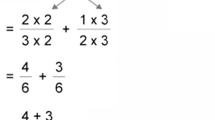Abstract
The High School Beyond study provides the data for an analysis of the computing experiences of young adults. Five types of computing experiences-general, personal and recreational, job, general educational and high school computer usage are examined with respect to selected socio-economic and demographic characteristics. The results suggest that computing experience is related to gender, race, SES, father's education and family income. When controlling for gender, several relationships are modified.
The world is entering a new period. The wealth of nations, which depended upon land, labor, and capital during its agricultural and industrial phases — depended upon natural resources, the accumulation of money and even upon weaponry — will come in the future to depend upon information, knowledge and intelligence (Feigenbaum and McCordick, 1983; 14).
Similar content being viewed by others
Bibliography
Becker H. J.: 1983, ‘School uses of microcomputers. Report #3 from a national survey’, Baltimore: Johns Hopkins University.
Beniger J. R.: 1986, The Control Revolution: Technological and Economic Designs of the Information Society, Cambridge and London: Harvard University Press.
Campbell, P.: ‘The computer revolution: Guess who's left out?’, Interracial Books for Children Bulletin 15: 3–6.
Danziger J., W. H. Dutton, R. Kling and K. Kraemer: 1982, Computers and Politics: High Technology in American Local Governments, New York: Columbia University Press.
Feigenbaum E. A. and McCorduck P.: 1983, The Fifth Generation, Reading, Mass.: Addison-Wesley.
Baberman S.: 1978, Analysis of Qualitative Data, Volumes I and II. New York: Academic Press.
Hayes J.: 1984, Microcomputer Usage in Schools, 1983–84, Denver: Quality Educational Data.
Hiltz S. R. and Turoff M.: 1978, The Network Nation, Reading, Mass: Addison-Wesley.
Hueftle S. J., Welch S. J., and Welch W. W.: 1983, Images of Science: A Summary of Results from the 1981–82 National Assessment in Science, Minneapolis: University of Minnesota.
Jones C., M. Clarke, G. Mooney, H. McWilliams, I. Crawford, B. Stepheson, and R. Tourongraku: 1983 High School and Beyond Sophomore Cohort First Follow-up (1982) Data File User's Manual, Washington: NCES.
Kraemer K. L. and J. N. Danziger: 1984, ‘Computers and control in the work environment’, Public Administration Review 44: 32–42.
Kraemer K. L. and W. H. Dutton: 1977, ‘The interests served by technological reform: The case of computing’, Administration and Society 11: 80–106.
Lickleder J. C. R.: 1979, ‘Computers and government’, in Dertouzos M. S. and J. Moses (eds.), The Computer Age: A Twenty Year View, Cambridge, Mass.: MIT Press.
Martin J.: 1981, Telematic Society: A Challenge for Tomorrow, Englewood Cliffs: Prentice-Hall.
Phi Delta Kappan: 1985, ‘Problems of equity in high school programming classes’, Mar: 515–16.
West J., Miller W., and Diodato L.: 1985, An Analysis of Course-taking Patterns in Secondary Schools as Related to Student Characteristics, Washington: U.S. Government Printing Office.
Winner L.: 1984a, ‘Mythinformation: Romantic politics in the computer revolution’, Research in Philosophy and Technology 7: 287–304.
Winner L.: 1984b, ‘Mythinformation in the high-tech eras’, IEEE Spectrum 21: 90–96.
Author information
Authors and Affiliations
Rights and permissions
About this article
Cite this article
Platter, A. Computing experiences of young adults: An empirical analysis. Soc Indic Res 20, 291–302 (1988). https://doi.org/10.1007/BF00302400
Received:
Issue Date:
DOI: https://doi.org/10.1007/BF00302400




